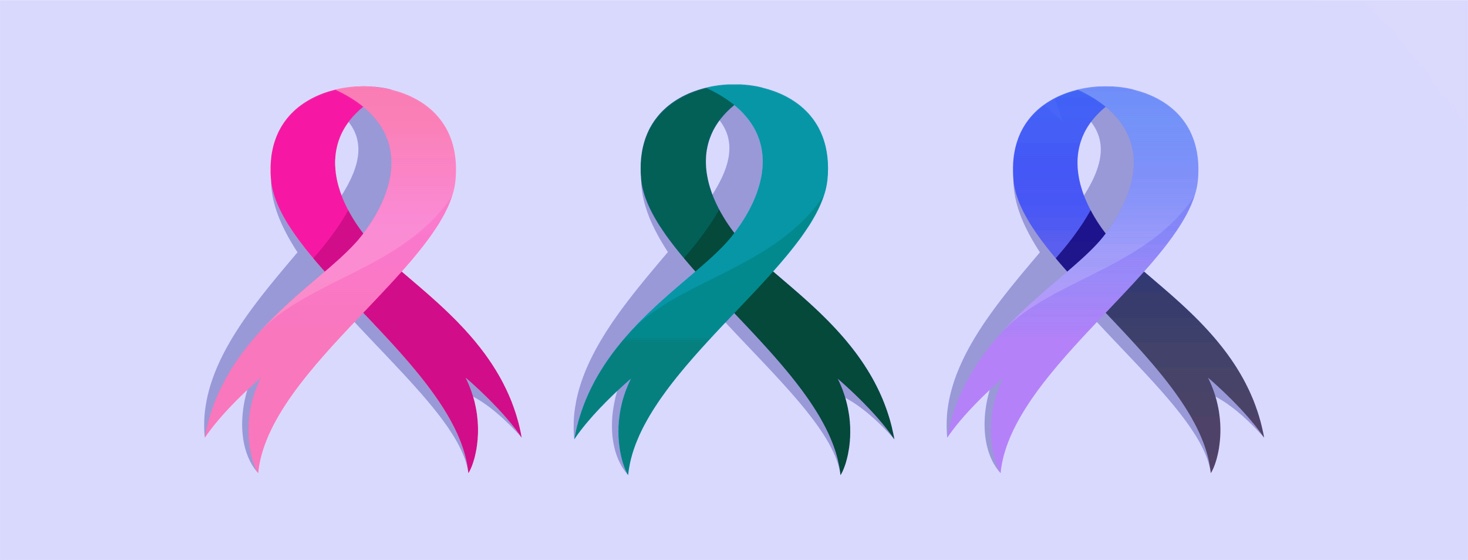Linking Prostate, Breast, and Ovarian Cancers: What Is the Common Factor?
Most cancers are sporadic or random. This means that they are caused by exposure to a carcinogen, or cancer-causing substance such as sunlight or cigarette smoke. They may also be caused by certain viruses like HPV. Other cancers can be caused by genetic changes that have been passed down through your parents’ DNA. These are “inherited cancers,” and they account for about 5 to 10 percent of all cases of cancer.1
Recent research has shown that the mutations in the BRCA1 and BRCA2 genes that contribute to prostate cancer and breast cancer may also contribute to ovarian cancer. This means that if someone in your family has a mutation in these genes, you may be at a higher risk of developing one of these cancers.2
How are genetics related to cancer?
The rate that our cells form and what they form into is mostly controlled by genes in our DNA. In cancer, changes or mutations in these genes means that cells grow out of control. They will often grow faster, look different from the normal cells around them, and can even gain the ability to move, or metastasize.3
Certain genes are called “tumor suppressors.” They work to prevent cancer by making sure that cells do not grow too fast and that the DNA in cells is copied correctly. BRCA1 and BRCA2 are tumor suppressor genes. However, mutations in BRCA1 and BRCA2 genes have been connected with many cancers.3
What are the risk factors for ovarian cancer?
Risk factors include older age, history of endometriosis, and family history of ovarian cancer. Family history may contribute in different ways. Family members are often all exposed to similar environments and experiences. For example, living in a household where 1 or more people smoke exposes everyone in the household.3,4
Family history of ovarian cancer may also be a risk factor because of inherited genes. More than 20,000 women in the United States are diagnosed with ovarian cancer every year. About 10 percent of the ovarian cancer diagnoses, or roughly 2,000 cases per year, are related to mutations in BRCA1 or BRCA2 genes that have been passed down through families.5
How do BRCA genes relate to prostate and breast cancers?
Around 250,000 women in the United States are diagnosed with breast cancer every year. About 3 percent of these diagnoses, or roughly 7,500 cases per year, are related to mutations in BRCA1 or BRCA genes that have been passed down through their families.5
Scientists believe that 50 to 60 percent of prostate cancer cases involved inherited genes. The most common inherited mutations are in the BRCA1 and BRCA2 genes. If these genes are passed down in your family, they can increase the risk of developing prostate cancer, specifically high-risk forms of the cancer. 6
If I or a family have one of these cancers, what should I do?
Knowing your family history can help you learn more about your risk of developing other diseases. It is a powerful step toward preventing certain cancers or detecting them early. Let your doctor know if any of your close family (grandparents, parents, siblings, or children) have had cancer.5
If your doctor feels that your family history puts you at an increased risk of cancer, they may recommend genetic counseling with a healthcare professional who can perform genetic testing.5
Genetic counselors can discuss and explain the results of your genetic tests with you. If the results show that you have a risk of developing cancer in the future, your genetic counselor can work with you and your doctor to decide on a plan. If you do not have BRCA1, BRCA2, or other mutations, they may not recommend any special measures. Otherwise, they may recommend things like getting mammograms or prostate checks earlier. 5
It is important to note that not everyone with a BRCA1 or BRCA2 mutation will develop cancer. Also, not all breast, ovarian, and prostate cancer is due to BRCA1 or BRCA2 mutations. Genetic testing is a tool to understand potential cancer risks better and to empower people to learn more about their health.5
If you have any questions about genetic testing or your cancer risk, speak to your doctor.

Join the conversation